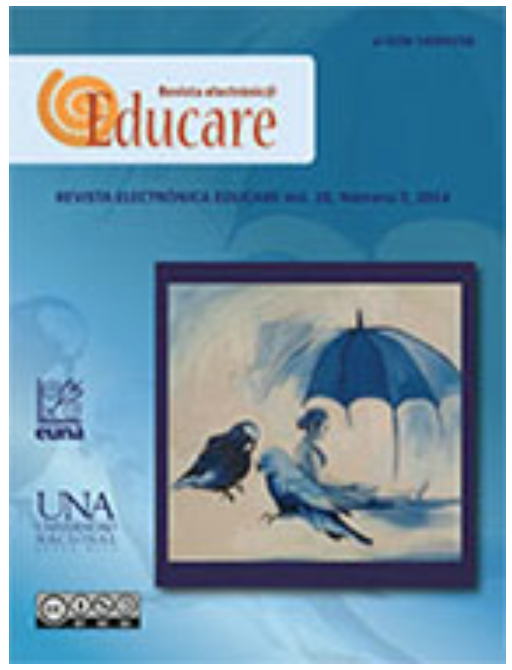Diagnostic Study of School Opportunities for High School Alumni in the City of Tlalnepantla, State of Mexico
DOI:
https://doi.org/10.15359/ree.18-2.7Keywords:
Opportunities, academic education, work insertion, professional performance, alumni.Abstract
It is vital that the school system currently promotes an equal distribution of educational opportunities between all social sectors and encourages alumni to have the opportunity to work in positions where they can take full advantage of the education they received. Therefore, the objective of this study was to diagnose the school opportunities that high school alumni have regarding their academic education and the relationship with their professional and job performance. The research was exploratory since it determined school opportunities for alumni as well as descriptive since it identified means for work insertion, continuity in higher education, and the degree of satisfaction of the educational services received. The design was cross-sectional because data was collected at one specific point in time, using a 44-item questionnaire applied to 65 alumni (36 male and 29 female). Results showed that the jobs they have are similar to those of their parents: 36.9% employees and 13.8% laborers. Only 41.5% were able to continue with higher education in public institutions, which reflects that poor students are disadvantaged due to their socio-economic and cultural background.
References
Barrón, M. C. (Coord.), Barajas, G., Ibarra, J. M., Fernández, J., Islas, R. M., Jiménez, M. S. … Vázquez, M. (2003). Los estudios de seguimiento de egresados en el periodo 1992-2002. (Cap. 1: Un acercamiento al estudio de egresados). En S. Reynaga (Coord.), Educación, trabajo, ciencia y tecnología (Vol. 6, pp. 31-38). México: Consejo Mexicano de Investigación Educativa. Recuperado de http://www.comie.org.mx/doc/portal/publicaciones/ec2002/ec2002_v06.pdf
Berverley, C. (agosto, 2002). Educación y mercado del trabajo en América Latina, frente a la globalización. Revista de la CEPAL, 77, 123-141. Recuperado de http://www.eclac.org/publicaciones/xml/9/19289/lcg2180e_Carlson.pdf
De Ibarrola, M. (2009). El incremento de la escolaridad de la PEA en México y los efectos sobre su situación laboral y sus ingresos, 1992-2004 REDIE. Revista Electrónica de Investigación Educativa, 11(2), 1-19. Recuperado de http://www.redalyc.org/articulo.oa?id=15512151002
Fernández-Huerga, E. (julio-setiembre, 2010). La teoría de la segmentación del mercado de trabajo: Enfoques, situación actual y perspectivas de futuro. Investigación Económica, 69(273), 115-150, Recuperado de 2012 de http://www.redalyc.org/articulo.oa?id=60114744004
Garrido-Trejo, C. (enero-abril, 2011). Funcionalidad técnica de la educación y demanda de profesionales. Zona metropolitana de Toluca, 1995-2005. Convergencia, Revista Ciencias Sociales, 55, 69-85. Recuperado de http://scielo.unam.mx/pdf/conver/v18n55/v18n55a3
Gutiérrez, L (enero-junio, 2009). El devenir de la educación media superior. El caso del estado de México. Tiempo de Educar, 10(19), 171-204, Universidad Autónoma del Estado de México, México. Recuperado de http://www.redalyc.org/articulo.oa?id=31113164007
Muñoz, C. (2001). Implicaciones de la escolaridad en la calidad del empleo. En E. Pieck (Coord.), Los jóvenes y el trabajo: La educación frente a la exclusión social (pp. 155-200). México D.F.: Universidad Iberoamericana. Recuperado de http://www.oei.es/etp/jovenes_trabajo.pdf
Muñoz, C. (s. f.). Implicaciones de la escolaridad en la calidad del empleo en los jóvenes. Recuperado de http://www.uia.mx/campus/publicaciones/jovenes/pdf/epieck5.pdf
Navarro, M. (2003). Consideraciones teóricas para el estudio de egresados. En ANUIES (Aut.), Esquema básico para estudios de egresados (pp. 11-18). México, DF.: ANUIES.
Secretaría de Educación Pública (SEP). (2013). Bachillerato general. Recuperado de http://www.dgb.sep.gob.mx/02-m1/01-dgb/bachillerato_general.php
Universidad Juárez Autónoma de Tabasco (2004). Programa institucional de seguimiento de egresados y opinión de empleadores. Recuperado de http://www.archivos.ujat.mx/dese/programas_proyectos_estrategicos/seguimiento_egresados/Programaegresadosempleadores.pdf
Villa, L. (enero-marzo, 2007). La educación media superior: ¿Igualdad de oportunidades? Revista de la Educación Superior, 36(1), 141, 93-110, Recuperado de http://www.redalyc.org/articulo.oa?id=60414105
Villalobos, G. y Pedroza, R. (julio-diciembre, 2009). Perspectiva de la teoría del capital humano acerca de la relación entre educación y desarrollo económico. Tiempo de Educar, 10(20), 273-306. Recuperado de http://www.redalyc.org/articulo.oa?id=31112987002
Downloads
Published
How to Cite
Issue
Section
License
1. In case the submitted paper is accepted for publication, the author(s) FREELY, COSTLESS, EXCLUSIVELY AND FOR AN INDEFINITE TERM transfer copyrights and patrimonial rights to Universidad Nacional (UNA, Costa Rica). For more details check the Originality Statement and Copyright Transfer Agreement
2. REUTILIZATION RIGHTS: UNA authorizes authors to use, for any purpose (among them selfarchiving or autoarchiving) and to publish in the Internet in any electronic site, the paper´'s final version, both approved and published (post print), as long as it is done with a non commercial purpose, does not generate derivates without previous consentment and recognizes both publisher's name and authorship.
3. The submission and possible publication of the paper in the Educare Electronic Journal is ruled by the Journal’s editorial policies, the institutional rules of Universidad Nacional and the laws of the Republic of Costa Rica. Additionally, any possible difference of opinion or future dispute shall be settled in accordance with the mechanisms of Alternative Dispute Resolution and the Costa Rican Jurisdiction.
4. In all cases, it is understood that the opinions issued are those of the authors and do not necessarily reflect the position and opinion of Educare, CIDE or Universidad Nacional, Costa Rica. It is also understood that, in the exercise of academic freedom, the authors have carried out a rogorous scientific-academic process of research, reflection and argumentation thar lays within the thematic scope of interest of the Journal.
5. The papers published by Educare Electronic Journal use a Creative Commons License:















 The articles published by Educare Electronic Journal can be shared with a Creative Commons License:
The articles published by Educare Electronic Journal can be shared with a Creative Commons License: 



